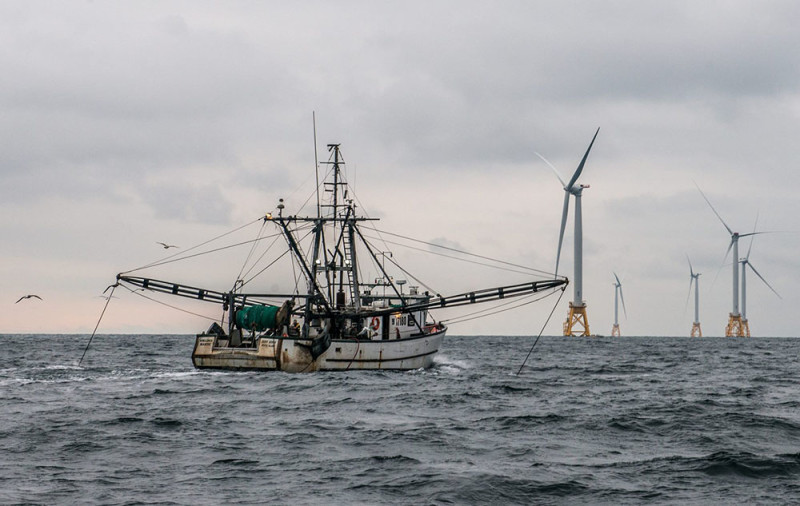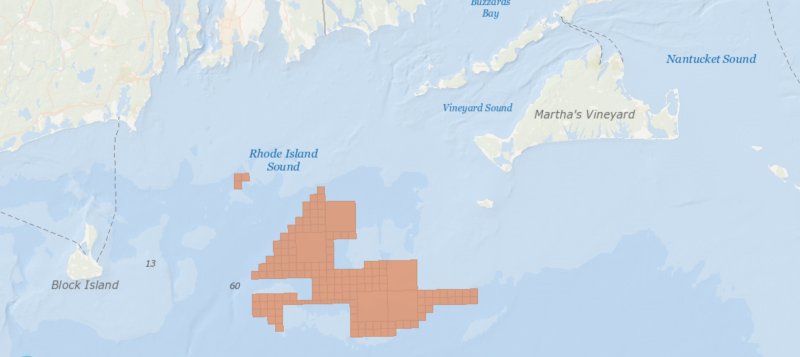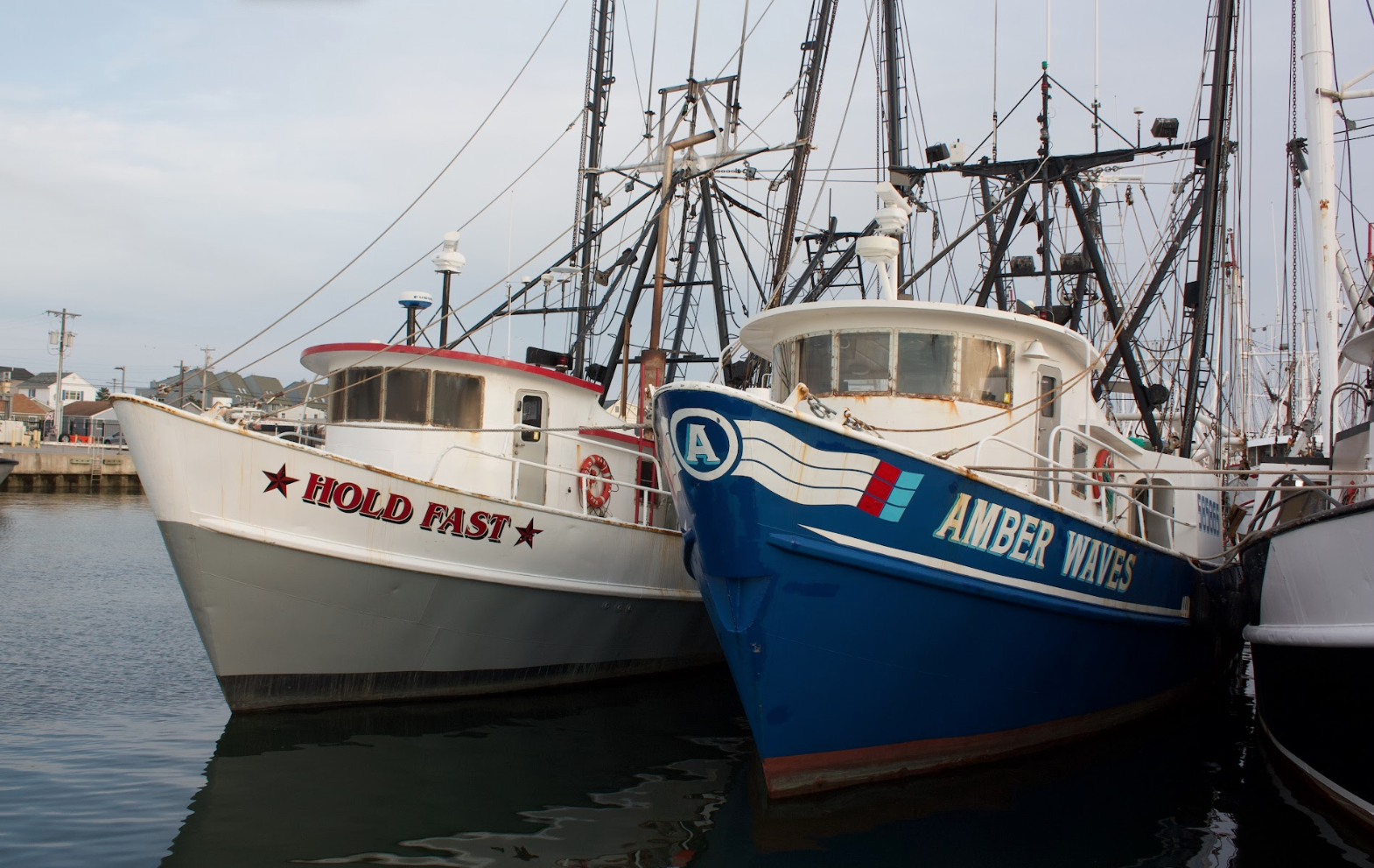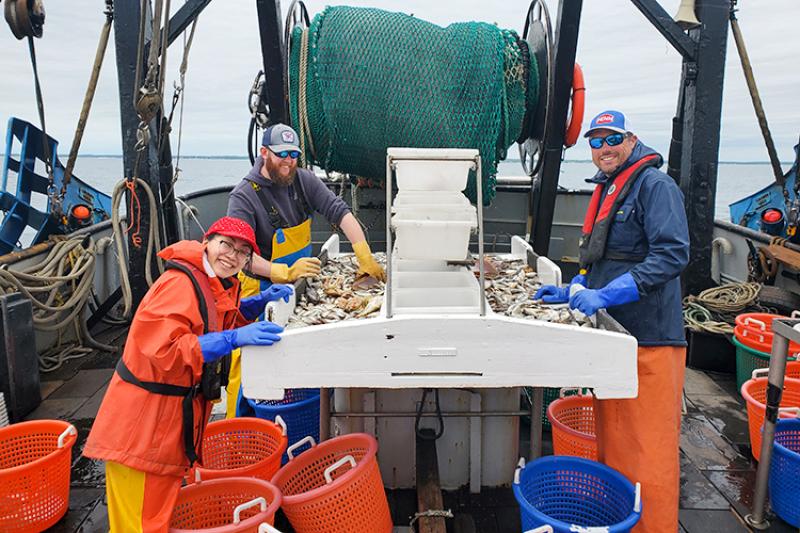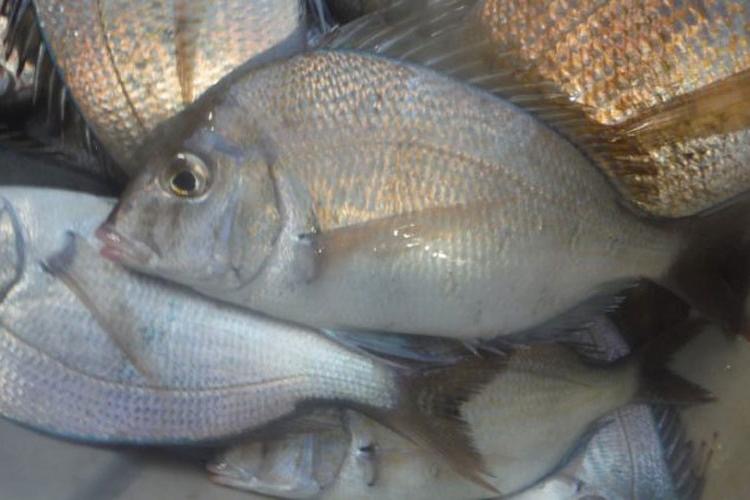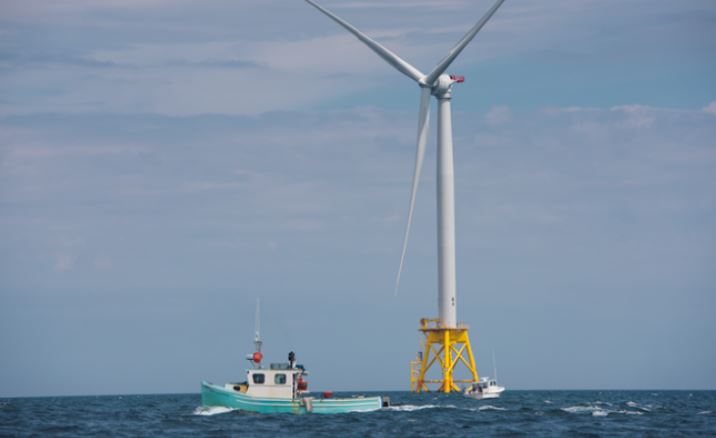Rhode Island Fishermen’s Advisory Board resigns en masse
Published onAll nine members of the Rhode Island Fishermens Advisory Board resigned Sept. 1, saying the state Coastal Resource Management Council is so committed to developing offshore wind power that it has rejected the boards concerns about fishery and environmental impacts. It has become abundantly clear that the Rhode Island CRMC has made deference to offshore wind developers its top priority regardless of the requirements of the Ocean SAMP, the cost to the environment, or the impacts to Rhode Islands fishing industry, board members said in a letter to Jeff Willis, the executive director of the Coastal Resources Management Council. The states Special Area Management Plan is a regulatory tool enabled by the Coastal Zone Management Act, a 1970s federal law that gives states a say in development in federal waters. Rhode Island fishermen say the state should be more aggressive in using that power to control how the federal Bureau ...
Read MoreRhode Island utility rejects Revolution Wind 2 project
Published onRhode Island Energy said it will not enter a power purchase agreement for the proposed Revolution Wind 2 project because the projected costs to electric customers are too high. The decision is a setback for offshore wind developers rsted and Eversource coming just after the federal Bureau of Ocean Energy Management announced it had completed an environmental review for the partners first-phase Revolution Wind project. The Revolution Wind 2 decision, announced Tuesday by Dave Bonenberger, president of Rhode Island Energy, stated that affordability and reliability would be key factors in how the company evaluated offshore wind bids. Higher interest rates, increased costs of capital and supply chain expenses, as well as the uncertainty of federal tax credits, all likely contributed to higher proposed contract costs, according to the company. Those costs were ultimately deemed too expensive for customers to bear and did not align with existing offshore wind PPAs ...
Read MoreNew Jersey Fishermen’s Dock Cooperative still strong, 70 years and counting
Published onEstablished on July 1, 1953, the Fishermens Dock Cooperative, Inc. of Point Pleasant Beach, N.J., has been the home port of generations of New Jersey commercial fishermen. The cooperative dock and packing house or the Co-op as it is customarily referred to, is located near the entrance to the Manasquan Inlet. The Manasquan Inlet sits between the Jersey Shore towns of Manasquan and Point Pleasant Beach. The inlet is part of the Atlantic Intracoastal Waterway and a major thoroughfare of maritime transportation. Point Pleasant Beach together with the nearby town of Brielle, are home to a fleet of commercial and recreational fishing vessels. Retired commercial fisherman and author Jim Lovgren explained that the Co-op was originally established by twelve members, all of whom were commercial fishermen. The goal in forming the Co-op was to provide members with dock space, easy access to fuel and the packing ...
Read MoreNortheast fishermen, scientists test ‘restrictor rope’ for bottom trawl surveys
Published onScientists and fishermen have worked together over many years to develop bottom trawl survey gear that performs consistently, ensuring accurate and reliable data for U.S. fisheries management. This summer they have been evaluating a potential way to better standardize survey gear a restrictor rope that helpskeepthe distance between trawl doors consistent while trawling in different conditions, depths, warp lengths, and gear configurations. A summary of the project from the National Marine Fisheries Services Northeast Fisheries Science Center describes experiments in spring and summer 2022 at sea with scientists and fishermen with long experience in cooperative survey work. Their main platform was the F/VDarana R, with Captain Jimmy Ruhle, his son Bobby Ruhle and their crew. Homeported at Wanchese, N.C., the Darana R has for years supported the bi-annualNortheast Area Monitoring and Assessment Programbottom trawl survey, led by the Virginia Institute of Marine Science at Gloucester Point ...
Read MoreAtlantic Scup Fishery Achieves MSC Certification
Published onThe Marine Stewardship Council (MSC) announced that the Atlantic Scup (Stenotomus chrysops) bottom trawl fishery has achieved MSC certification for sustainable fishing practices. The MSC Fisheries Standard is a globally recognized standard used to assess if a fishery is well-managed, and reflects the most up-to-date understanding of internationally accepted fisheries science and management. The MSC certificate for scup is jointly held by commercial fishing operations Lunds Fisheries, Inc. and Seafreeze, Ltd. The Atlantic scup certification follows a rigorous twelve-month review carried out by a third-party assessment body, SCS Global Services. The MSC Fisheries Standard has three core principles that every certified fishery must meet including 1) sustainable fish stocks, 2) minimizing environmental impact, and 3) effective fisheries management. As well as preserving fish stocks and the marine environment, the MSC certification process ensures that scup products can be traced to a sustainable source through required ...
Read MoreAfter Trump administration moves to pull plug, Vineyard Wind looks to Biden
Published onVineyard Winds request for a temporary pause in the federal review of its 800-megawatt offshore wind energy project triggered an announcement from the Department of Interior that it must restart its entire permit application process. In a flurry of activity by the outgoing Trump administration, the head of the Interior Departments legal staff, solicitor Daniel H. Jorjani on Tuesday issued new guidance stressing that if Interior Secretary David Bernhardt determines that either fishing or vessel transit constitute reasonable usesof the exclusive economic zone, the high seas and the territorial sea, the Secretary has a duty to prevent interference with that use. The 16-page memo asserts the secretary of Interior should determine what is unreasonable interference from offshore wind turbines based on the perspective of the fishing user. Its a victory for commercial fishing advocates including the Responsible Offshore Development Alliance and Fisheries Survival Fund, who went directly to ...
Read More




